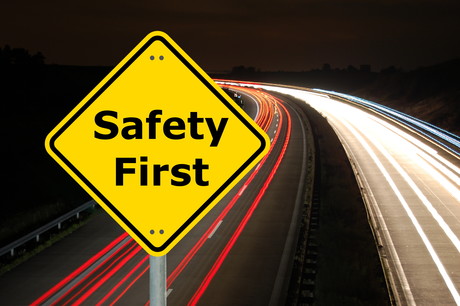
What do you value in your life? Can you see a linkage between those values and an incident that changes everything?
There are 350–400 spinal cord injuries in Australia each year; 46% these are caused by motor vehicles.1
In fact, vehicles are reported to be the highest mechanism of injury for workplace fatalities, with work-related road crashes accounting for one in three occupational fatalities in Australia and 15% of the national road toll.2
The majority of Australian companies have it covered when it comes to safety on the job — in particular, where staff are required to perform high-risk procedures. Unfortunately, where safety often falls down (or is missed altogether) is with education relating to the importance of safe driving. Vehicle safety is critical not only at work but also commuting to and from work.
Michelina Pelosi is one of PBF Australia’s presenters of its injury prevention program, which can be tailored to address individual organisations’ issues. Pelosi recently spoke about road safety at a conference for FMC in Sydney.
FMC is an agricultural solutions company based in the US. They work side by side with Australian resellers and farmers to solve problems and create opportunities with their products and pipeline of proprietary chemistry.
Michelina was involved in a motor vehicle accident that changed her life forever. She not only lost the use of her legs (paraplegia) but her uncle. Through being open and able to talk about her crash, Michelina encourages people to make better choices to prevent it happening to them.
Rather than resorting to shock tactics through use of graphic accident images, FMC chose to educate its workforce on the importance of determining what really matters most in their life. Then demonstrating the linkages with the loss of those values through a relaxed attitude while driving.
In the case of FMC, they wanted to focus on their safety shares, including cleaning window screens every 100 km (particularly in regional areas), taking regular rest breaks and checking tyre pressures and tread. All of these things may seem minor but can add up to a disastrous incident. The purpose of FMC’s safety shares is to keep safety front of mind, making sure that every worker arrives home safe after their day at work.
“Michelina was brilliant and we have all spoken about her message many, many times since,” FMC Australasia Commercial Associate, Agricultural Solutions Cassia Ferguson said. “She was an exceptional presenter and we felt PBF Australia’s injury prevention workplace road presentation was very valuable. Michelina’s story will make us all think about safety for the rest of our lives, and I personally am very thankful for that.”
Top 5 road safety tips for workplaces
PBF Australia has provided the following top road safety tips for workplaces:
- Don’t drive on auto-pilot. We often travel the same route to and from work on a daily basis. It can become so monotonous that you don’t think about where you are going. Drivers need to be aware of their surrounds at all times to react to the constant changing potential hazards.
- Manage your fatigue. Drivers must take regular breaks to refresh, regardless of the distance they are travelling. Companies can set up a monitoring system to ensure the appropriate breaks are being taken.
- Always wear your seatbelt. No matter what, when sitting in a vehicle put your seatbelt on. Even if you are driving five minutes up the road on-site, this is not negotiable.
- Take ownership of the vehicle’s roadworthiness. Check your tyres, windscreens, lights and ensure everything is operating as it should be. If something is not right then refuse to drive the vehicle.
- Minimise your distractions. This is one of the biggest issues of modern driving. Put the mobile phone away so you do not look at text messages or make in-depth phone calls. 100% of your attention should be on the road at all times.
1Norton L, Spinal Cord Injury, Australia 2007-08, Australian Institute of Health and Welfare, Injury Research and Statistics Series Number 52. Canberra; 2010
2CARRS Q paper — State of the Road Work-related road safety.
Supporting the wellbeing of Australia's firefighters
Academics Dr DAVID LAWRENCE and WAVNE RIKKERS detail their continuing research in the area of...
Software-based COVID-19 controls help protect onsite workers
The solution decreases COVID-19-related risks by ensuring that contractors and visitors are...
Spatial distancing rules: are they insufficient for health workers?
Researchers have revealed that the recommended 1- to 2-metre spatial distancing rule may not be...











